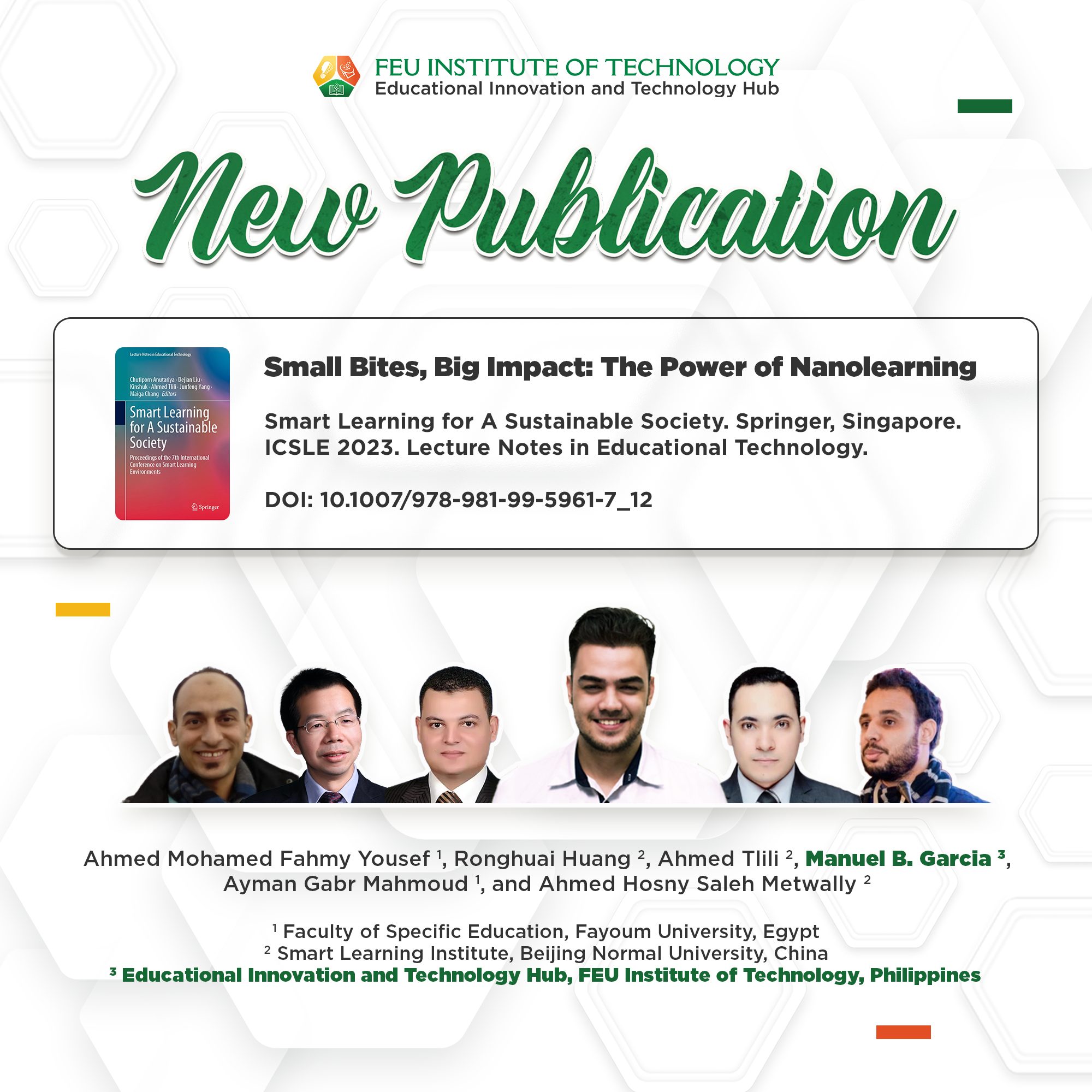Embracing Nanolearning: International Research Collaboration Unveils a New Educational Paradigm
An international research collaboration, featured at the 7th ICSLE 2023, introduces the innovative concept of nanolearning as a transformative educational approach.
September 14, 2023
Research
In the rapidly evolving educational sector, nanolearning emerges as a pivotal adaptation. This approach, rooted in the Greek term 'nanos' for 'dwarf', presents learning in small, focused segments. Each nano lesson, lasting 30 seconds to two minutes and digitally delivered, aims to target specific learning outcomes. Nanolearning’s core principle is the simplification of complex subjects into easily digestible chunks, transforming traditional education into a more engaging and less overwhelming process. This technique is especially beneficial in an era of information overload, offering a solution to the challenges of dwindling attention spans and the need for quick, accessible knowledge.
Nanolearning's significance lies in its alignment with the digital tendencies of modern learners, who often prefer quick and concise information. This method not only breaks down educational content into manageable parts but also caters to various learning styles, making education more inclusive and adaptable. Its compatibility with digital platforms like smartphones and tablets further underscores its relevance in today's tech-centric educational landscape, where traditional teaching methods are continuously being reimagined to better suit the needs of a new generation of learners.
The Collaborative Study
"Small Bites, Big Impact: The Power of Nanolearning" marks a significant milestone in educational research, born from the collaborative efforts of scholars from around the globe. The study’s authors, Ahmed Mohamed Fahmy Yousef, Ayman Gabr Mahmoud (Fayoum University, Egypt), Ronghuai Huang, Ahmed Tlili, Ahmed Hosny Saleh Metwally (Beijing Normal University, China), and Manuel B. Garcia (FEU Institute of Technology, Philippines) have brought together their diverse expertise to explore the efficacy of nanolearning. Featured at the 7th International Conference on Smart Learning Environments, the research delves into the adaptability of nanolearning across various mediums like videos, podcasts, and mobile applications.
This research was inspired by the burgeoning interest in nanolearning, with Dr. Garcia being one of the pioneers in this area. His previous work, 'TikTok as a Knowledge Source for Programming Learners: A New Form of Nanolearning?' published in 2022, laid the groundwork for this study. This paper highlighted the potential of short-form video platforms like TikTok as effective tools for nanolearning, particularly in programming education. Building on these insights, "The Power of Nanolearning" study further investigates the broader applications and impacts of this innovative learning approach in various educational settings.

The Future of Learning
Nanolearning, as explored in this collaborative study, fills a unique niche in the educational landscape. While it may not entirely replace comprehensive education, its ability to cater to the needs of the digital generation positions it as a significant complement to traditional educational methodologies. The implementation of nanolearning requires a balanced approach, considering factors like content quality, screen time, and the necessity of social interaction in learning. As education continues to evolve, nanolearning stands as a promising avenue for enhancing learning experiences and outcomes in the 21st century.
